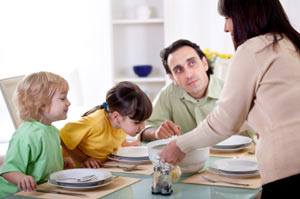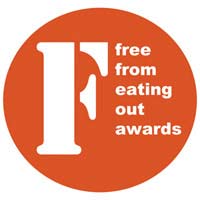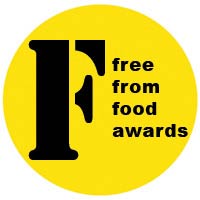From my notes taken at the recent gastroenterology conference…
 Quotes from Proust, Nigel Slater and Laura Esquivel were not at all what I was expecting from a gastroenterology conference.
Quotes from Proust, Nigel Slater and Laura Esquivel were not at all what I was expecting from a gastroenterology conference.
They were part of an interesting session on Food and Mood by Professor Nick Read, who talked about how food affects us all. Obviously food can affect health – we all know that from experience! And food can bring great pleasure. But Professor Read meant more than this: that food carries with it a great freight of memory and meaning, both at a cultural level, and at a personal or familial level.
He told us a story of a patient (A) who complained of an allergy to food. When he explored the start of the problem, it turned out that she’d gone out for a lovely meal with her boyfriend at their favourite fish restaurant. She expected him to propose marriage, given the setting, and given his announcement that there was something he wanted to talk to her about.
Instead he told her that he’d been having an affair with a colleague who was now pregnant, and so he wanted to break up with A.
She rushed outside and was violently sick.
Sionce then, she’d reacted in the same way every time she’d eaten fish – and the reaction had spread to other foods too. Her food issues were associated with grief.
Now, for those of you diagnosed with coeliac disease, this kind of emotional distress is clearly not the cause of the problem. Coeliac disease is a condition resulting from an actual physical condition, not an emotional one. Counselling won’t solve the problem – only a gluten free diet will do that. However, it is a story we all recognise. Food does indeed affect mood, and for those people with non-specific intolerances, such as IBS, the professor recommended reducing stress and anxiety, and keeping levels of fat and sugar low. Good advice for all of us!
While much of this session wasn’t directly relevant to me, I did take away this thought:
Don’t make food a stressful situation for your coeliac child. Dietary issues are stressful enough. If your child feels your stress and worry – for example at eating away from home, perhaps at a friends birthday party – it will raise their levels of stress, reduce their pleasure in eating and in the experience as a whole, and may cause some food-aversion in the future.
Keep it calm.
(I believe that Nick Read is speaking again at the Allergy Show in May – are you going?)
 |
I’ve written a book summarising what we’ve learnt over 20 years of dealing with the gluten free diet, and it might be just what you’re looking for. It packs the lessons we’ve learned into what I hope is a helpful and straightforward guidebook. It’s available on Amazon, as a paperback or for your Kindle… |






Never make meals a traumatic situation for your coeliac kid. Nutritional concerns are traumatic enough. If your kid seems your pressure and fear – for example at consuming away from home, perhaps at a friends wedding – it will increase their pressure levels, decrease their satisfaction in consuming and in the experience as a whole, and may cause some food-aversion later on.